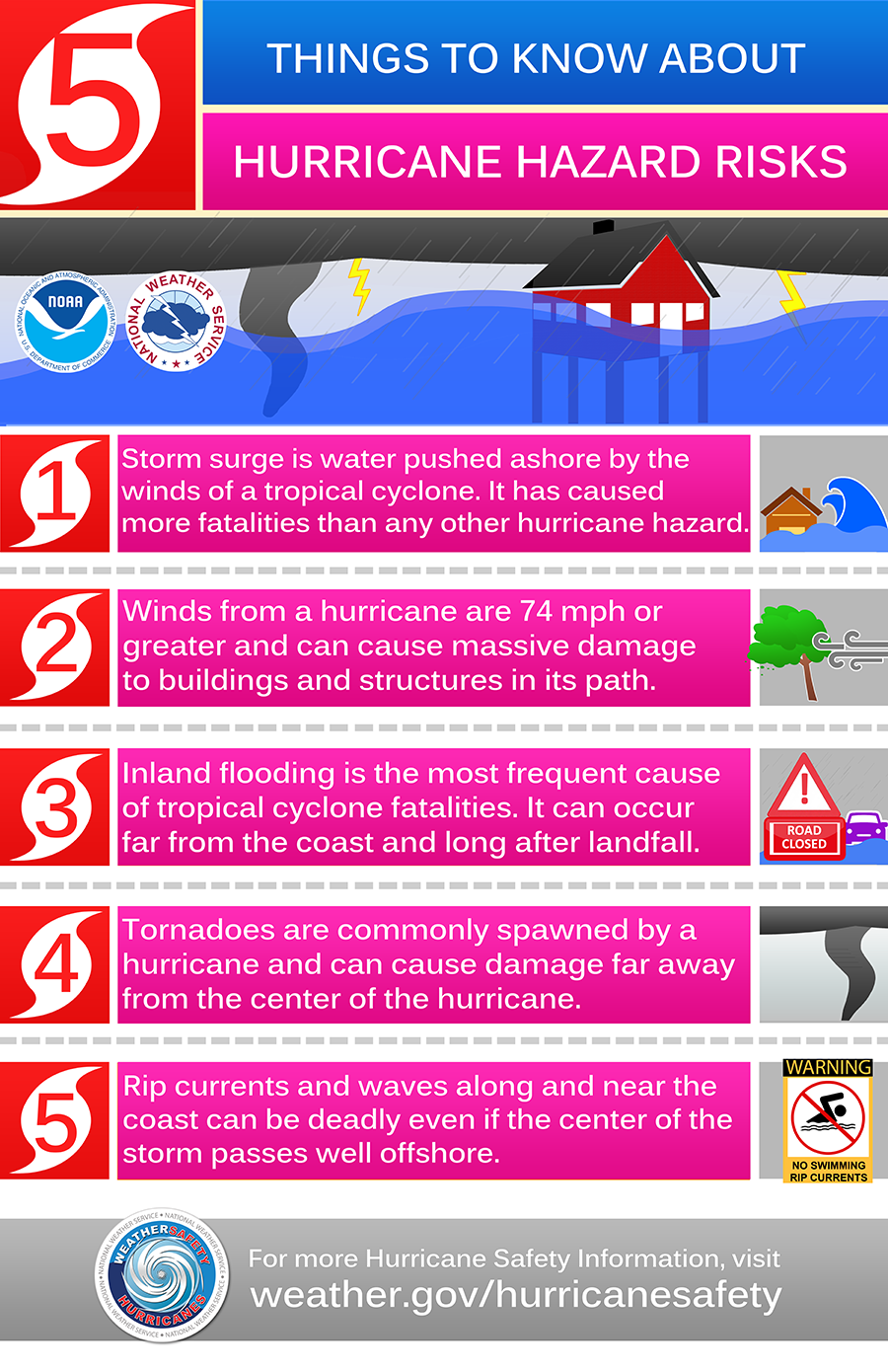
Determine Your Risk
Find out today what types of wind and water hazards could happen where you live, and then start preparing now for how to handle them. Hurricanes are not just a coastal problem. Their impacts can be felt hundreds of miles inland. It’s easy to forget what a hurricane is capable of doing. The U.S. has not been directly impacted by a major hurricane (Category 3 or higher) in more than a decade. However, hurricanes such as Ike, Sandy and Isaac reminded us that significant impacts can occur without it being a major hurricane. Many people are suffering from hurricane amnesia in the forms of complacency, denial and inexperience. This remarkable hurricane streak is going to end, and we have to be ready for it to happen this season.
5 Things to Know About Hurricane Hazard Risks
Storm Surge
Storm surge is water pushed ashore by the winds of a tropical cyclone. It has caused more fatalities than any other hurricane hazard.
Wind
Winds from a hurricane are 74 mph or greater and can cause massive damage to buildings and structures in its path.
Inland Flooding
Inland flooding is the most frequent cause of tropical cyclone fatalities. It can occur far from the coast and long after landfall.
Tornadoes
Tornadoes are commonly spawned by a hurricane and can cause damage far away from the center of the hurricane.
Rip Currents
Rip currents and waves along and near the coast can be deadly even if the center of the storm passes well offshore.

